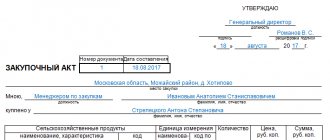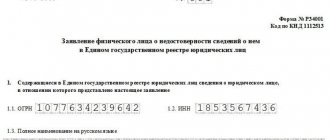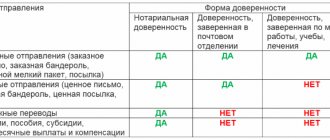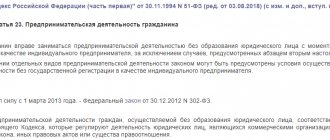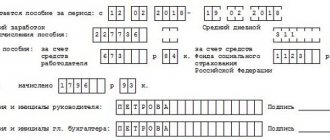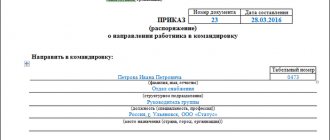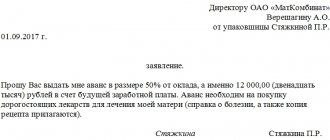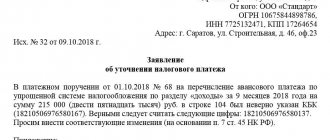To whom can a power of attorney be issued?
A legal entity can issue a power of attorney to both an individual and another legal entity. Most often, organizations prefer to entrust the representation of their interests to their employees: heads of departments, chief accountants, lawyers, etc. A power of attorney can be issued for one representative or for several.
It happens that enterprises include a line about the possibility of reassigning a power of attorney. In cases where this right is granted, the first power of attorney must be certified by a notary.
Nuances and features
It is necessary to understand that every word and action relating to the object of the power of attorney and emanating from the trustee will be regarded from a legal point of view as the words and actions of the principal. In this regard, when choosing a trusted person, it is necessary to carefully approach the choice, since cases of fraud often occur on this basis.
It is very difficult to revoke a general power of attorney, especially in cases where the trustee has the right to delegate powers to third parties. If this is stated in the power of attorney, such third parties must be notified to revoke the document, but since there can be an unlimited number of them, this can take a lot of time. Consequently, it seems possible to actually revoke a general power of attorney in very rare cases.
There are several nuances that apply to notarial actions:
Notaries often try to refuse to certify general powers of attorney, as they pose associated risks for the principal. Of course, according to the law, a lawyer cannot refuse such a service to the principal, but he will try to convey the most complete information about the possible consequences through persuasion and explanation. Also, the notary may suggest drawing up several one-time or special powers of attorney instead of one general power of attorney. Sometimes their number can be quite large, and their assurance will result in additional financial costs. On the one hand, the principal can thus protect himself from the actions of an unscrupulous person, but this does not make sense with complete trust (for example, if spouses issue general powers of attorney for each other to manage bank accounts).- A general power of attorney can be certified by any notary: it is not necessary to do this at your place of registration. Moreover, a general power of attorney can be certified in any city in the Russian Federation.
- According to the current legislation of the Russian Federation, a general power of attorney for the provision of interests in some cases can be issued not only by a notary, but also by a person with equivalent powers. For example, if the principal is serving a sentence in prison and serves in the army, the document can be certified by the head of the prison or colony or the commander of the unit, respectively. This option is only possible if the notary is absent or does not have the physical ability to carry out the registration.
- It is prohibited to use electronic signatures and facsimiles on general powers of attorney: only the originals of the parties entering into this type of agreement are required.
- Special requirements are put forward for information presented in numbers. Such data must be duplicated in words in brackets.
Sometimes it happens that a power of attorney, checked several times by all parties, is printed out in its final version and certified. But after you have stood in line at the notary, paid the money and received a ready-made valid document, you may find errors and inaccuracies in it. This does not mean that the document will have to be drawn up again: all corrections can be made to the document itself, and they only need to be certified with separate seals and a notary’s signature.
As for the validity period, by default a general power of attorney to represent the interests of individuals is valid for one year, but according to the wording of Law 186 of the Civil Code of September 1, 2013, the power of attorney can be valid for an unlimited amount of time.
Interestingly, in practice, a notary does not have the right to certify a power of attorney that will be valid for more than five years. Such a defect in the legislation leads to the fact that at the end of this maximum period the power of attorney must be reissued and, in fact, only one-time and special powers of attorney that do not require certification can be valid indefinitely.
https://youtu.be/TLZVuE4qWB4
Types of power of attorney
A power of attorney can be of three types:
- general (with the widest possible range of powers);
- special (to carry out any instructions within a strictly defined period of time);
- one-time (for one specific action).
This power of attorney can be presented to any institution: both commercial (banks and other structures) and government (courts, tax inspectorates, post offices, extra-budgetary funds, etc.).
Basic rules for filling out a power of attorney
There are no clearly developed rules for filling out a power of attorney. However, when preparing it, you should adhere to the basic rules recommended in office work when issuing documents of this kind. In particular, a power of attorney to represent the interests of a legal entity must necessarily include information about the principal and personal information about the authorized person . It must contain a detailed list of instructions that the principal delegates to his representative; the validity period of the power of attorney and the signatures of both parties must also be indicated here. Moreover, the wider the terms of reference of the trustee, the more detailed information about the parties should be included in the document.
When presenting a power of attorney to some government agencies (for example, courts), as well as to perform certain actions (for example, receiving documents from government bodies), the power of attorney must be certified by a notary.
You can write a power of attorney on an A4 sheet, either by hand or in printed form. In this case, all signatures, of course, must be done manually.
What functions does a power of attorney perform and what is the significance of this document?
A power of attorney, giving the right to represent the interests of a company or a citizen, is required so that another person can act on behalf of his client. A power of attorney can be issued not only to a lawyer, but also to an acquaintance, relative or colleague. In most cases, the reasons for issuing a power of attorney are:
- Transactions with real estate and other property;
- Submission of documents to various government authorities;
- Protection of rights and interests in court proceedings or in law enforcement agencies.
When drawing up a power of attorney, it is important to take into account that this document will allow another person not only to represent the interests of a citizen or organization, but will also provide the opportunity to fully dispose of property. In particular, we are talking about transactions related to the sale, rental, exchange and division of real estate. The person who can certify the document can be a notary, the head of the company, the immediate superior or another representative of higher authorities.
The power of attorney has a simple written form. The current legislation does not have a strict form for this document, which means there is no point in looking for a special form. Speaking about notarization, it should be noted that many government organizations prefer to work with those powers of attorney that bear the notary’s stamp. There are also several cases when notarization is mandatory:
- The corresponding condition is present in the requirements of the transaction;
- The signing of the agreement will become the reason for making adjustments or additions to the state documentation;
- The purpose of issuing a power of attorney is to re-register documents in government agencies.
A power of attorney issued on behalf of an organization does not differ significantly from a similar document executed by a citizen. A mandatory requirement for any power of attorney is its validity period.
If you do not indicate it, the document will not have legal force. The costs of notarizing a power of attorney, in most cases, fall on the person drawing up the document.
Formatting the main part of the document
- In the “header” of the document the word “Power of Attorney” is written with a brief designation of the action for which it was issued. Here you also need to enter the power of attorney number for internal document flow.
- The line just below indicates the locality in which the document is drawn up, as well as the date it was completed (day, month (in words), year).
- Next, you should enter the details of the legal entity that grants the interests: the full name of the enterprise (indicating its organizational and legal form), OGRN, INN, KPP (this information can be found in the registration documents of the enterprise), its legal and actual address.
- Then you need to write the position of the employee on whose behalf this document is being drawn up (usually a director, general director of an organization or a person authorized to sign such papers), his last name, first name, patronymic (first name and patronymic can be indicated as initials), as well as the document , on the basis of which the principal acts (as a rule, this line is written “Based on the Charter” or “Regulations”).
- After this, personal information regarding the representative is entered. This indicates his last name, first name, patronymic and identification document (name, series, number, when and by whom it was issued), place of permanent registration (according to the passport).
- The following briefly indicates why the document was drawn up.
- Below, the power of attorney contains a detailed description of the powers that the principal entrusts to his representative. The institution or enterprise for presentation at which the power of attorney will be valid is also indicated.
Duration of the power of attorney and signatures of the parties
At the conclusion of the document, the period for which the power of attorney was issued is indicated.
Here you can specify any period, but if there are no specific numbers, then the power of attorney will automatically be considered valid for a year from the date of issue.
Then the authorized person puts his signature under the document, which is certified by the head of the principal legal entity. The latter also signs the power of attorney and affixes the seal of the organization (since 2020, legal entities are not required to use stamps and seals when working, however, many government and non-government organizations, as before, require an imprint on documents).
Persons authorized to certify documents
You need to know that a notary is not the only one who can certify a document, although most citizens think so. In addition to the notary, the law establishes other employees who have the right to do this:
- Heads of correctional institutions;
- Chief doctors at the hospital;
- Captains on the ship;
- Unit commanders.
If the form was certified by any of the above persons, then the document is no less valid than the one certified by the notary.
https://youtu.be/Cg0o2AJrq-w

